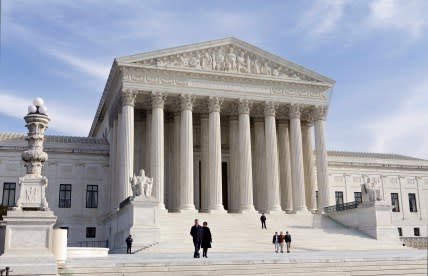What should be on Black voters’ radar ahead of 2024 elections
- Oops!Something went wrong.Please try again later.
- Oops!Something went wrong.Please try again later.
- Oops!Something went wrong.Please try again later.
- Oops!Something went wrong.Please try again later.
- Oops!Something went wrong.Please try again later.
In the backdrop of this year’s elections are rising tensions related to race in America.
The 2024 election is just over 300 days away, with plenty of races and policy issues for Black voters to dive into in the months ahead.
In addition to the likely repeat matchup between President Joe Biden and former President Donald Trump to determine who will run the White House for the next four years, elections across all 50 states of America will determine political leadership on the state and federal levels for the next two to six years.
In the backdrop of this year’s elections are rising tensions related to race in America, as conservative groups and lawmakers target diversity, equity, and inclusion programs in education and business. Additionally, several court cases and ballot measures will decide critical issues, from voting rights to abortion and reproductive freedoms.
Here’s what Black voters should know heading into the 2024 elections on Nov. 5.
Republican field hostile toward Black America

Since the rise of Donald Trump’s presidency in 2016, racist and hate-fueled violence has seen an uptick in America. Democrats and activists have placed some of the blame on Trump’s policies and rhetoric, from referring to Black Lives Matter as a racist organization to threatening Black and brown protesters with “vicious dogs” and “ominous weapons.”
Trump is now seeking to return to office amid four criminal indictments, including a federal election case in which he falsely claimed that voter fraud in the 2020 election is why he lost his reelection bid to Biden.
Many of the votes Trump and his attorneys attempted to invalidate in failed legal challenges in 2020 were those of largely Black voters in urban cities in states like Georgia, Michigan, Pennsylvania, and Wisconsin.
Trump’s false voter fraud claims also led to a violent and deadly attack on the U.S. Capitol, where majority-white Trump supporters waved confederate flags and erected a noose – two symbols representing America’s history of slavery and racial violence.
False claims of voter fraud from Trump and his allies have also led to an increase in violent threats against election workers. Most notably, mother and daughter Ruby Freeman and Shay Moss, two Black female election poll workers in Georgia, were awarded $148 million in a defamation lawsuit against Trump’s former attorney Rudy Giuliani. Giuliani and Trump made false claims that Freeman and Moss had committed voter fraud, including that they added illegal ballots to the voting precinct’s tabulation.
If Trump is somehow defeated in the Republican presidential primary contest (which is unlikely), other Republicans deemed hostile to Black America and racial progress could rise to the top.
Nikki Haley, former South Carolina governor and United Nations ambassador, recently caught flak for refusing to say slavery was the cause of the U.S. Civil War. The rising Republican presidential candidate has previously decried what she described as a growing “woke ideology” in schools. Similarly, presidential candidate Florida Governor Ron DeSantis led an “anti-woke” agenda in the Sunshine State that includes dismantling DEI programs, banning an African-American AP studies program, and sanctioning a history curriculum that teaches middle school students that enslaved Black people benefited from slavery.
Voting rights for Black voters in question
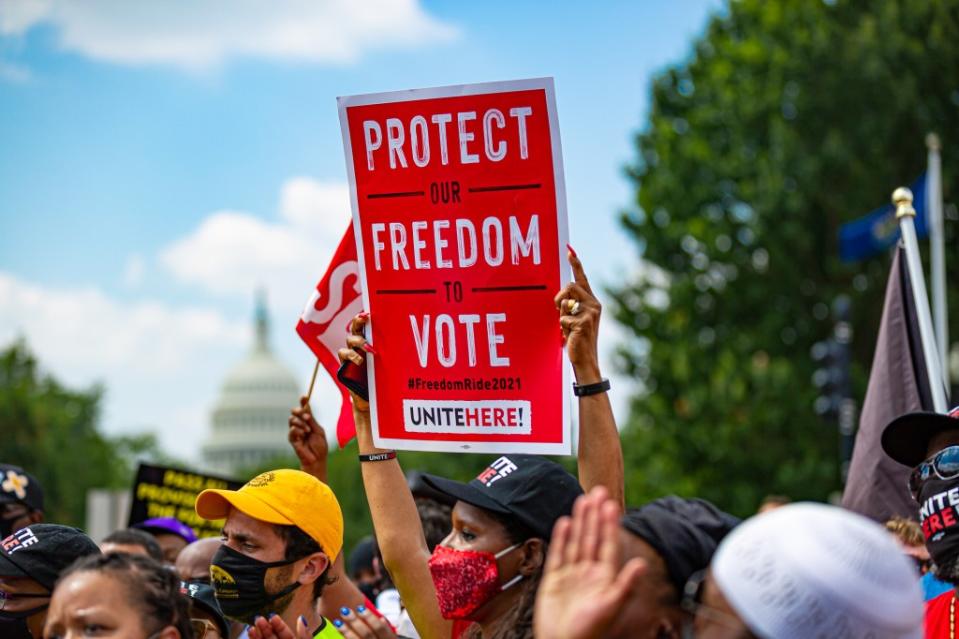
Since the results of the 2020 Census, Republican-controlled states across the country have enacted laws restricting access to voting and have drawn federal maps that advocates and legal organizations have deemed racially discriminatory.
State lawmakers have passed laws restricting access to voting by mail and absentee voting, imposed stricter voter I.D. laws, and enacted new barriers to applying for mail ballots, among other actions. One controversial 2021 voting law enacted in Georgia prohibits the passing of food and water to voters standing in long lines outside voting precincts.
As laws restricting access to the ballot climbed recently, so too have lawsuits challenging them.
However, since the passing of the Voting Rights Act of 1965, rulings from the U.S. Supreme Court have weakened once-enforceable provisions to protect the voting rights of Black voters, including the most recent appellate court decision in November 2023 that ruled that private citizens and civil rights groups can no longer sue states under Section 2 of the Voting Rights Act. That decision is expected to be taken up by the Supreme Court.
Section 2 prohibits voting practices or procedures that discriminate based on race, color, or the language of minority groups. If the ruling stands, only the U.S. attorney general, appointed by the president of the United States, will have the authority to bring lawsuits under Section 2 of VRA, making who occupies the White House more important.
Additionally, Republican-controlled state legislatures have been repeatedly sued for racial gerrymandering, which is the practice of drawing congressional maps that dilute the voting power of Black voters. Some lawsuits brought under the Voting Rights Act have proved to be successful, like in Alabama, where a federal court ordered that a second majority-Black district be drawn to more accurately reflect the voting population of Black people in the state.
Other racial gerrymandering cases remain pending in Georgia, Louisiana, South Carolina, Florida, and North Carolina ahead of the 2024 elections, though it is unclear how many will be resolved before Nov. 5.
Black women could make history in U.S. Senate
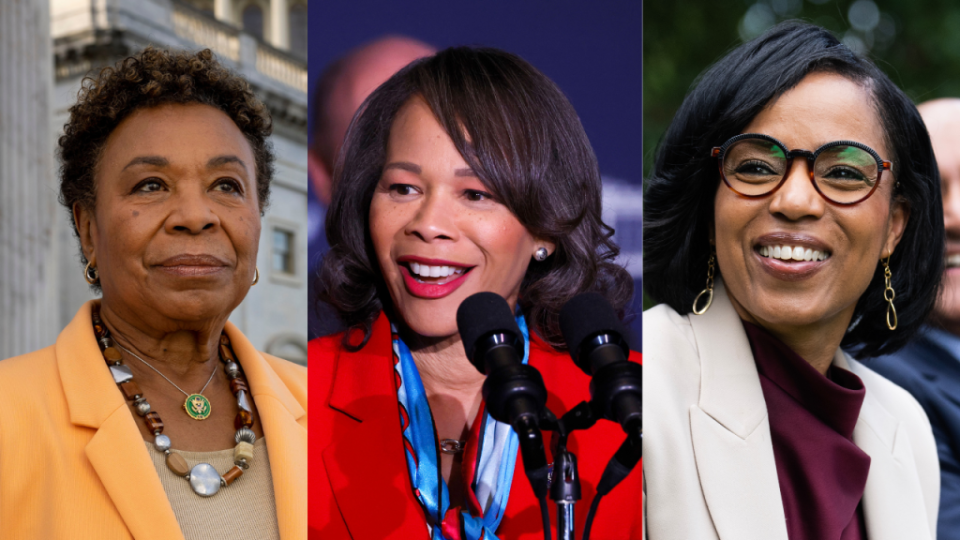
For the first time in U.S. history, more than one Black woman could serve in the United States Senate. At least three Black women are top contenders for Senate seats across the country this November.
U.S. Rep. Barbara Lee is seeking a bid for a U.S. Senate seat in California. A former Black Panther Party member, Lee has served in the House of Representatives for 25 years. The 77-year-old progressive notably was the only member of Congress who opposed the Iraq war in 2001.
Though Lee is well respected in Congress and served in leadership as co-chair of the Congressional Progressive Caucus and chair of the Congressional Black Caucus, she faces a highly competitive primary against her fellow Democratic Reps. Adam Schiff and Katie Porter, and Republican Steve Garvey and others.
Rep. Lisa Blunt Rochester is seeking the Democratic nomination for U.S. Senate in Delaware. A close ally to President Joe Biden, Blunt Rochester is expected to easily win the open Senate seat vacated by Senator Tom Carper. Blunt Rochester, elected to Congress in 2016, served as co-chair of Biden’s 2020 presidential campaign and a member of the vetting committee for Biden’s vice presidential candidate selection, which ultimately selected Harris.
Prince George’s County Executive Angela Alsobrooks is seeking the Democratic nomination for Senate in Maryland. Alsobrooks is a favorite to win the Senate seat and has picked up endorsements from Maryland Governor Wes Moore, a number of members of Congress, and dozens of Maryland state lawmakers.
Missouri State Senator Karla May is seeking the Democratic nomination for U.S. Senate in her state in a longshot bid to unseat Republican Senator Josh Hawley. Her biggest competitor in the primary race is Lucas Kunce, a U.S. Marine Corps veteran who most recently served as director of national security at the American Economic Liberties Project.
May was elected to the Missouri House of Representatives in 2010 and was elected to the Missouri State Senate in 2018 after reaching a term limit in the House. Before her political career, she served as a union representative for Communications Workers of America.
Before Senator Laphonza Butler, D-Calif., was appointed by California Governor Gavin Newsom in October 2023 (Butler will not run for election in November), a Black woman had not served in the Senate since Vice President Harris stepped down from her California Senate seat in 2021 to assume her historic role in the Biden administration.
Only one other Black woman has been elected in the U.S. Senate: Former Senator Carol Moseley Braun in Illinois.
If more than one of the current Senate candidates is elected in November, it would see a historic moment of representation for Black women, albeit still disproportionate when considering the overwhelmingly white chamber of Congress.
2024 could see more Black “firsts”
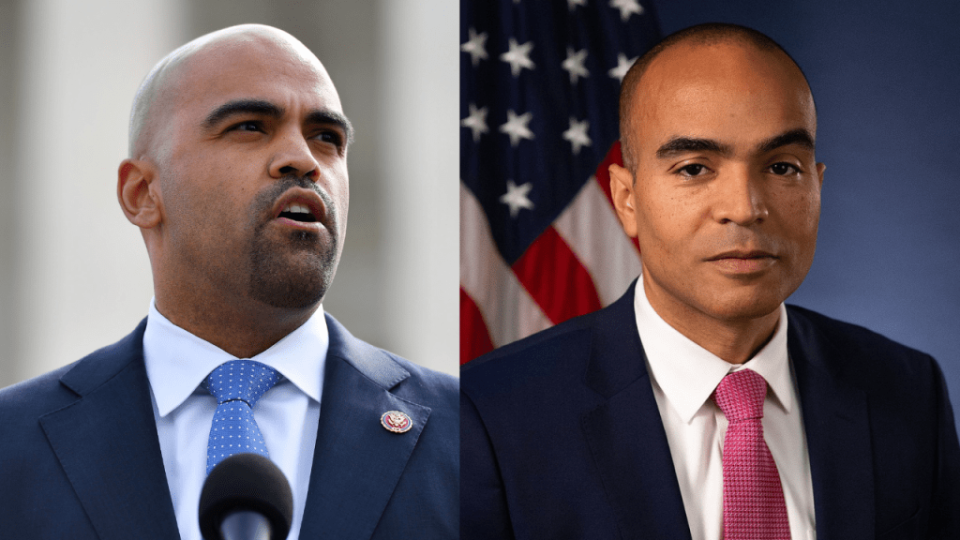
In addition to Senate candidates Lisa Blunt Rochester, Angela Alsobrooks and Karla May aiming to become the first people of color and Black women elected to the U.S. Senate from their states, two other Black “firsts” could occur in November.
U.S. Rep. Colin Allred is running for the Democratic nomination for the U.S. Senate in Texas. If elected, Allred, a former professional football player turned lawyer and politician, would become the first Black person elected to the Senate in the state of Texas.
And in Washington state, former U.S. attorney Nick Brown vies to become the first Black person elected as attorney general. The Morehouse College and Harvard Law School graduate was also a contestant on the second season of “Survivor” in 2001. Brown’s legal work includes serving as a judge advocate general and other legal roles for the United States Army. He also served as general counsel to Washington Governor Jay Inslee.
Ballot measures to determine access to voting and reproductive care
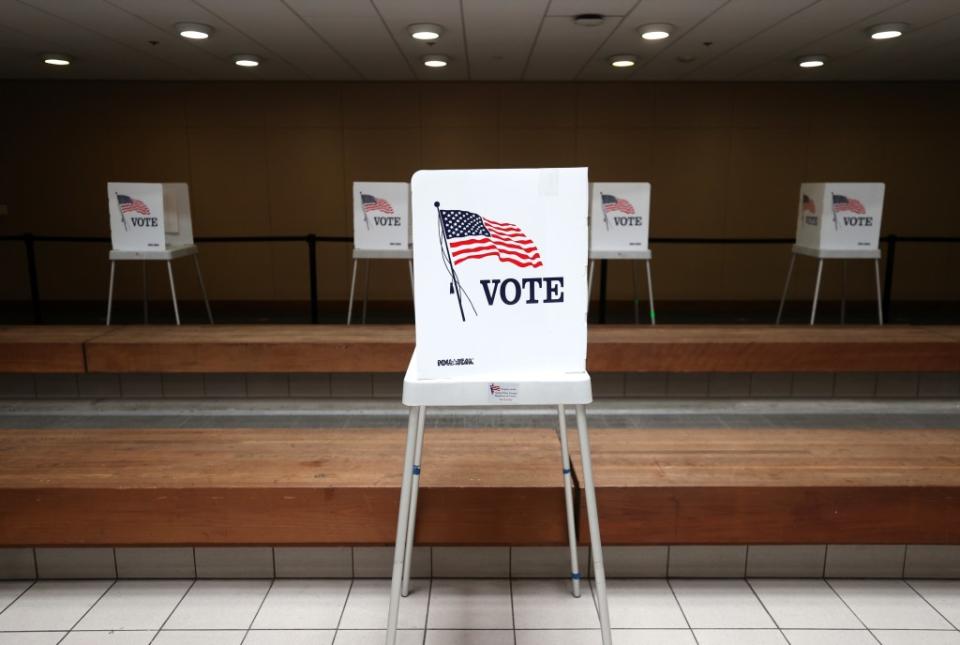
Election Day will also see voters weigh in on important ballot measures that could advance voting rights and abortion access in their states.
Following the controversial Supreme Court ruling that ended nearly 50 years of federal abortion protections through the landmark Roe v. Wade decision, reproductive rights have become a hot-button issue in the country.
Nearly two dozen states have enacted strict abortion bans following the SCOTUS ruling, including in states with large Black populations like Texas, Florida, Georgia, South Carolina, Alabama, Mississippi, Virginia, and Louisiana.
However, in states where abortion access was on the ballot, like Ohio, Kentucky, Michigan, California, Virginia and others, reproductive health advocates saw major victories. Democrats and abortion rights advocates are hoping to see that trend continue as Maryland and New York voters will get the opportunity to vote on a ballot measure that would enshrine abortion rights into the state constitution.
Voters nationwide will also be presented with ballot measures to reform voting in their states. Voters in Nevada and Oregon will get the opportunity to establish ranked-choice voting, and in a ballot measure in Connecticut, could authorize the state legislature to provide by law no-excuse absentee voting.
Racial bias in AI technology during election season

As AI technology quickly advances and reaches the fingertips of everyday Americans, lawmakers and tech policy experts are raising the alarm about its growing dangers during the election year.
Politicians and industry leaders say they are particularly concerned about the risk of racial bias and how AI could be used to spread disinformation and misinformation to Black voters ahead of Nov. 5.
U.S. Senator Chuck Schumer told theGrio last year that AI-generated deepfakes (manipulated facial appearances), political ads, and chatbots have been particularly concerning as the 2024 elections ramp up.
Though Schumer and other senators are working with experts to draft AI election legislation focusing on racial bias, it is unclear whether any such bill would be introduced and passed in Congress before Election Day. In the meantime, it appears that legislation on the state level could happen more quickly.
Melanie L. Campbell, president and CEO of the Coalition on Black Civic Participation, said during a recent meeting with Schumer and Black media outlets on the dangers of AI that the risks for Black voters during the 2024 elections keep her and other civil rights leaders up at night.
“This election will determine what kind of democracy we will have or not have [and] AI will have an impact on that,” said Campbell.
Recommended Stories
What should be on Black voters’ radar ahead of 2024 elections
New poll shows that for Black and young voters, reelection for Biden-Harris is complicated
The year of social media soul-searching: Twitter dies, X and Threads are born, and AI gets personal
Poll shows Black voters are displeased with Supreme Court and want immediate reform
Biden seeks to redress racial disparities with marijuana pardons and drug clemencies
Joe Biden’s PR problem is not Black voters’ fault
VP Harris celebrates HBCU culture, buys Black during Atlanta trip
Pressley unveils groundbreaking bill to grant incarcerated persons the right to vote
Never miss a beat: Get our daily stories straight to your inbox with theGrio’s newsletter.
The post What should be on Black voters’ radar ahead of 2024 elections appeared first on TheGrio.



